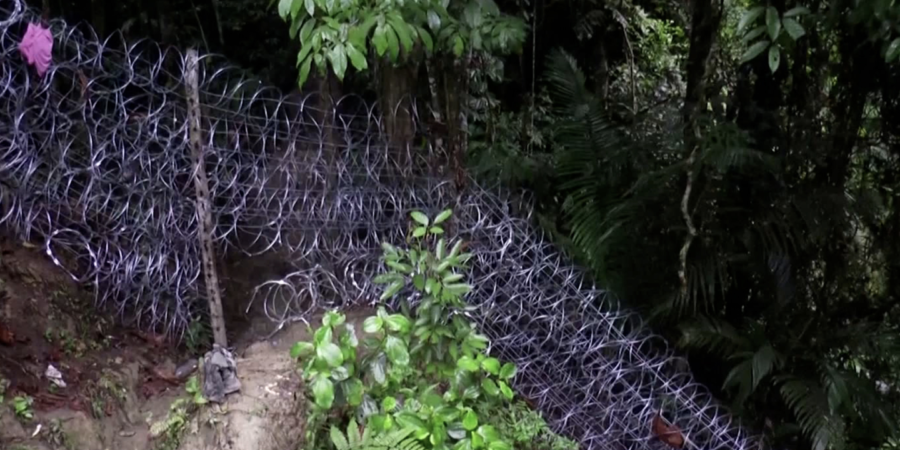The Minister of Public Security of Panama, Frank Ábrego, reported through a statement that between four and five steps of the border with Colombia in the Darién area were closed.
Ábrego said that the sites that have been closed are where irregular migrants entered Panama, led by “coyotes” (traffickers of people), from Colombia and that the purpose of closing those crossings at the border is to reduce the number of migrants who transit irregularly through the Darién jungle.
The minister indicated that surveillance in this sector is constant and is done through patrols of the Special Forces of the National Border Service of Panama (Senafront) through the area from the area of Caña Blanca, on the border with Colombia, to the Lajas post.
Likewise, the minister reported that he ordered the deployment of National Air Force (SENAN) patrols on the Caribbean and Pacific coasts.
According to the statement, the instruction of the Panamanian authorities is to establish the detention and surrender to the police or migratory authorities of Colombia of any person who travels by boat with irregular migrants and tries to enter the jurisdictional areas of Panama.
The border blockades had already been reported by the president of Panama, José Raúl Mulino, on the Friday before his inauguration.
A week ago, on a tour of the migration center of Lajas Blancas, in the province of Darién, Mulino said that a single path would be left open, that steps had already been closed with wire barriers and that they would enable about 300 units of the Senafront to monitor those areas.
He also assured on that occasion that, likewise, migrants will not be allowed to enter Panamanian territory, without a passport or valid document.
In line with the new immigration measures promoted by his administration, President Mulino enabled the Foreign Minister of Panama, Javier Martínez Acha, to sign a memorandum of understanding and immigration cooperation with Alejandro Mayorkas, Secretary of National Security of the United States.
Colombian Ombudsman’s Office asks for human rights guarantees for immigrants
The Ombudsman’s Office of Colombia, in the face of the announcement of the government of Panama of the closure of the border crossings located in the “Tapón” of the Darién, has requested that the central government urge the government of Panama to keep in mind the principles of international human rights law, such as refuge, accessibility to the satisfaction of basic needs and guarantees of non-return of migrants, susceptible to asylum and in need of international protection, as he said in a statement.
The Ombudsman’s Office added that the closure of those crosses, which are in inhospitable areas located in the “Tapón” of the Darién, will increase the restraining of people in the municipalities receiving migrants, specifically in the urban centers of the towns that are part of the Urabá subregion of Antioquia and Chocoano in the Colombian territory.
According to reports from the Colombian Ombudsman’s Office, public servants of the Ombudsman’s Office, depending on their missionary role, were in the Astí sidewalk, one of the border points with Panama and showed how the installation of a fence with barbed wire, approximately 80 meters long, prevents the passage on foot along the road that leads to rural territory of the Central American country.
The Ombudsman’s Office adds that the wire fence has also caused effects to the Colombian communities of Asti and Capurganá and those of Puerto Obaldía (Panama), since for decades they have been using that step for commercial and cultural exchange.
For his part, the president of Colombia Gustavo Petro said through his profile on social network X: “The barbed wires in the jungle will only bring drowning in the sea. Migration is slowed down by removing economic blockades and improving the economy of the south.”
